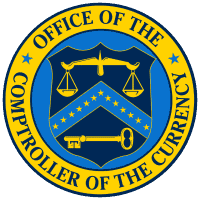Federal Charters May Remove Interest Rate Uncertainty for Fintech Firms

 The July 31 policy statement by the Office of the Comptroller of the Currency (OCC) announcing that it will now grant “special purpose national bank charters” to non-depository financial services firms is likely a game-changer for fintech in the U.S. This is because case law stemming from the Supreme Court’s decision in Marquette National Bank of Minneapolis v. First of Omaha Service Corp has established that any firm deemed a “national bank” by the OCC is exempt from interest rate caps outside of the state where it is domiciled.
The July 31 policy statement by the Office of the Comptroller of the Currency (OCC) announcing that it will now grant “special purpose national bank charters” to non-depository financial services firms is likely a game-changer for fintech in the U.S. This is because case law stemming from the Supreme Court’s decision in Marquette National Bank of Minneapolis v. First of Omaha Service Corp has established that any firm deemed a “national bank” by the OCC is exempt from interest rate caps outside of the state where it is domiciled.
Receiving a national bank charter from the OCC would likely remove much of the uncertainty that fintech firms such as peer-to-peer lenders have faced since the Madden vs. Midland Funding ruling from the U.S. Second Circuit Court of Appeals in 2015. This decision—overturning the longstanding “valid when made” precedent of courts honoring debt contracts when they changed hands—threw into question whether firms or individuals who buy loans that originated out of state would suddenly be subject to so-called usury laws of states that cap interest rates.
In the case, a federally-chartered bank had sold a loan to Midland Funding, a debt collector that was not a national bank. The New York-based borrower, Saliha Madden, sued Midland for violation of New York’s usury law. She argued that the 27 percent per year applied to her debt by Midland violated the state law’s interest rate cap of 25 percent per year.
Midland argued that the law didn’t apply and seemed to have the law on its side. Since the 1830s, federal courts have followed a doctrine called “valid when made,” which holds that a loan that is not usurious when originated cannot become usurious when it changes hands. Yet without really considering the “valid when made” doctrine, the court issued a ruling largely in favor of borrower Madden.
Even though the case involved a tradional debt collector and not a fintech firm, it cast uncertainty onto the fintech business model of peer-to-peer lenders such as Prosper and Lending Club. These loans also originate at a national bank and then are sold off to nonbank firms, which in turn sell portions of the loans to individuals. The threat that these loans could be invalidated could chill this increasingly viable alternative that gives both borrowers and savers an alternative to a traditional bank.
Recognizing the potential of peer-to-peer lending and other fintech innovations, members of Congress from both parties have sponsored bills to codify the “valid when made” doctrine. But until this is enacted into law, the OCC offers another alternative to fintech firms: become a special-purpose national bank and be exempt from the interest rate caps of state usury laws.
The OCC policy statement doesn’t grant this interest-rate exemption, but it doesn’t have to because case law already does this. In the Marquette ruling of 1978, a unanimous Supreme Court declared that First National Bank of Omaha could not be subject to the interest rate caps of Minnesota’s usury law on its credit cards, even though the bank had mailed credit card solicitations to Minnesota residents.
The decision, penned by liberal judicial icon William Brennan, cited language from the National Bank Act of 1864 stating that any bank chartered by the OCC may “charge on any loan … or other evidences of debt, interest at the rate allowed by the laws of the State, Territory, or District where the bank is located.” Since this bank was “located” in Nebraska and complied with state legislation on interest rates, “the mere fact that Omaha Bank has enrolled Minnesota residents, merchants, and banks in its [credit card] program thus does not suffice to ‘locate’ that bank in Minnesota.”
A string of federal court cases involving interstate credit have followed the Supreme Court precedent from Marquette. Even in Madden, the Second Circuit made clear that New York usury laws would never have applied if a national bank maintained any ownership of Madden’s loan.
And it shouldn’t make a difference that these will be “special purpose” national banks that don’t take deposits and aren’t insured by the Federal Deposit Insurance Corporation (FDIC). As the OCC says in its policy statement, “the National Bank Act gives the OCC broad authority to grant charters for … any of the three core banking functions of receiving deposits, paying checks, or lending money.” And no bank would have been insured by the FDIC when the National Bank Act was enacted in 1864, because the FDIC and federal deposit insurance weren’t created until almost 70 years later in 1933.
As my colleague Daniel Press points out, there are still many questions that need to be answered as far as the conditions fintech firms must meet on everything from capital to “financial inclusion” in order to be granted a charter from the OCC. Mandates that are too burdensome may deter many firms from applying, and CEI will urge the OCC to keep red tape to a minimum. Legislation is still necessary to codify the “valid when made” doctrine for all firms, regardless of whether they are chartered as national banks.
Still, the OCC’s statement is a positive step for many reasons. First, it is always good to encourage the formation of more banks that don’t take deposit insurance, and thus carry much less risk of a taxpayer bailout should they fail.
Second, extending Marquette’s preemption of state interest rate caps to fintech firms will broaden access to credit and create more choices for consumers, just as the Supreme Court ruling did for the credit card market in the late 1970s. George Mason University law professor Todd Zywicki, a former chairman of CEI’s board, points out that after Marquette, credit cards became more widely available and annual fees on these cards were eliminated or reduced.
Most importantly, CEI has long encouraged optional federal chartering to foster what our founder Fred L. Smith, Jr. has called “competitive regulation.” As Smith wrote in his 2003 book chapter “Cowboys Versus Cattle Thieves,” competitive regulation “encourages prudence … by allowing the parties to better attain that level of risk they prefer, and by remaining open to further refinements over time.” Let’s allow consumers and lenders to better attain the level of risk they prefer in the exciting new market of fintech!